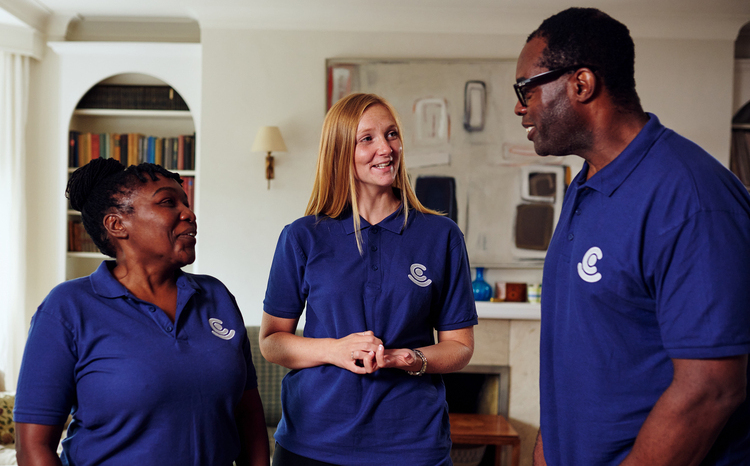MPs told that a further 162,000 medical documents undelivered

MPs investigating the biggest ever loss of NHS medical correspondence have been told that 162,000 extra documents went missing, beyond the 702,000 pieces of NHS correspondence already known to have been undelivered.
Over half a million of the items of correspondence, the majority containing patient identifiable data, that piled up undelivered from late 2013 but it took over two years for the alarm to be raised or effective action begun. NHS England chief executive Simon Stevens told MPs that it will be March before a full review of correspondence is completed, nearly five years on.
The missing documents came to public attention in February and resulted from outsourcing firm Capita and NHS Shared Business Services (SBS) failing to deliver vital medical correspondence, and proving incapable of dealing with a massive backlog that it allowed to build up over several years.
A subsequent report by the National Audit Office (NAO), published in June, identified at least 1,700 cases of potential patient harm resulting from the medical correspondence scandal.
The NAO investigation found that managers at SBS had been aware of a clinical risk to patients since at least January 2014 but did not develop a plan to tackle the backlog. NHS England estimates that handling the incident will cost £6.6 million for administration alone.
News of the latest losses came at an oral evidence session of the Commons public accounts committee, which is investigating the disappearance and storage of the patient documents.
According to a 17 October report by the Guardian NHS officials told MPs said that in the course of their inquiries, they had identified a further 162,000 medical documents that had either not been delivered or processed by Capita and SBS.
NHS officials told MPs that the latest batch of lost documents could included time critical treatment plans, details of changes to what drugs patients should be taking, child protection information and the results of a range of diagnostic tests.
Since the backlog and missing files came to light NHS officials have been investigating cases in which patients may have been harmed as a result of the medical correspondence not being delivered, and some 5,562 cases have been through clinical review.
Of those, 4,565 have been completed – 3,624 of which have shown that there was no clinical harm to patients. The NHS senior officials told MPs there are 941 cases still to be cleared, and said that no one has yet been identified as coming to harm because of the loss.
Simon Stevens told MPs on the PAC: “We think there are probably about 150,000 items or so that require repatriation back to GPs and we aim to do that by the end of December.”
The NAO found that SBS first recognised in January 2014 that patients may have come to harm due to a rising backlog of undelivered correspondence, but did not alert the department or NHS England until March 2016, over two-years later.
Vince Cable, the Liberal Democrat leader, called on Secretary of State for Health Jeremy Hunt to urgently appear before MPs to update them on the situation.
“This colossal blunder now turns out to be even worse than previously thought. the safety of thousands of patients has been put at risk due to the incompetence of a single private company and lack of proper oversight. Jeremy Hunt must urgently come before parliament to explain what steps are being taken to ensure this does not happen again.”
NHS SBS is a jointly owned and run by the Department of Health and Sopra Steria, an IT consultancy company that describes itself as a European leader in digital transformation. The company also has a joint venture with the Cabinet Office.
The company’s website says of the two UK joint ventures, “Both demonstrate our experience in making shared services work, at scale, to deliver significant savings.”





10 Comments
A naughty thought has struck me: I understand that just about none of the 700,000 documents originally squirreled away by SBS resulted in harm to patients. If this is so, this must mean that all the treatments referred to in the documents were successful (unlikely), and all the lab tests did not need follow-up treatment (also unlikely). So, the majority of the 700,000 documents and the treatments and tests were unnecessary! Perhaps they were just a colossal waste of money and resources. Just think of the cost of writing and sending 700,000 letters. – by snail mail. All for no useful result.
Perhaps this “documentgate” should be the trigger for a massive investigation of what these letters were all about. Perhaps such a probe could solve the NHS funding problem at a stroke. I am … only half… joking.
Yes, think you’re correct. I’ve not heard of lab results going by paper since mid 90’s, so presume these are secondary hard copies?
Which is why we need the real reason for the undelivered letters.
I wouldn’t be surprised if it’s the same reason why we get ‘undelivered’ electronic letters (yes they happen because the patient has moved, the sender sent it to the wrong surgery, etc).
Sorry to be pedantic but It’s not just that patients move. Software systems can send print files to printers not set to print. Letters converted to emails can be undeliverable with no software configuration to flag this status. Print files may be sent to a folder with a clean up utility that automatically deletes after a certain period without either confirmation that print has been successful or a yes/no flag to confirm permanent delete status.
Yes but they are mostly ways of producing paper letters, not electronic. Yes email is electronic but it has issues and better methods are available.
Do not think if records are digitised they will not get lost. Software systems can make print, filing or cleanup errors which produce the same outcome. The problem is less the process – as in the intended series of actions – and more the ‘shadow’ process – the lack of error trapping and outcome confirmation routines. Without an effective shadow process to address possible problems, in intended and unknown adverse outcomes remain an issue. Badly built software can actually make a print / email send failure harder to spot
If we digitise these records they can’t get lost…just sayin…
It gets worse: Capita, having failed to deliver 150,000 documents, joins SBS in the doghouse. My mind boggles…again.
How can any company which has contracted to deliver documents just not deliver them, but dump them in a warehouse? I would be curious to know just how many documents did they deliver, or did they just dump the lot?
I am still amazed that the hospitals and GPs that were expecting to receive the test results, prescription changes etc etc, just did not notice that the documents had not turned up. And why didn’t the patients notice? Has the whole healthcare world gone to sleep?
Or is there some massive systemic failure that we don’t know about?
I wonder why the MPs and the National Audit office are not investigating this more general and serious cock up, affecting hospital managers, consultants and GPs, rather than just the failure of SBS and Capita. Perhaps it is just easier to blame them and turn a blind eye to one’s own failings.
Agree the patient would have ensured this correspondence was delivered – if they knew about it.
As for the others – I assume Capita and SBS tried to deliver this correspondence. I would be shocked if they didn’t raise non delivery as an issue.
The NHS is so sclerotic that patients are unlikely to be aware paperwork has gone missing. As I know from personal experience, I have been trying to choose and book an appointment since 22/9/17 only to be told “no appointments available, you will be contacted by 6/10/17, if not contact the organisation who referred you” – which is of course my GP where appointments are available in about 1 months time. (Luckily the referral is not urgent).
Comments are closed.